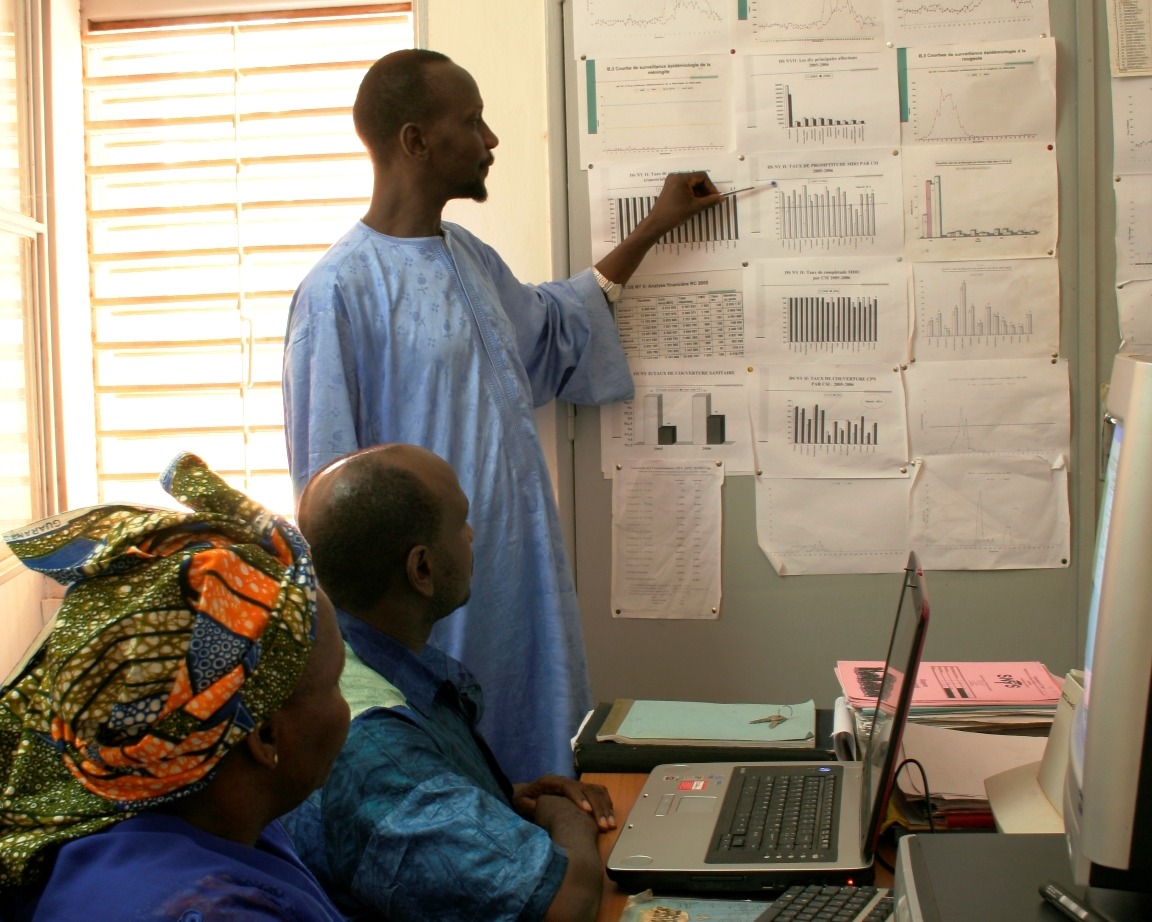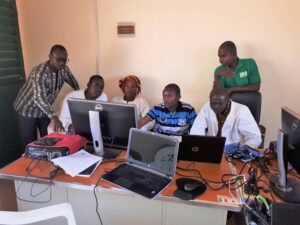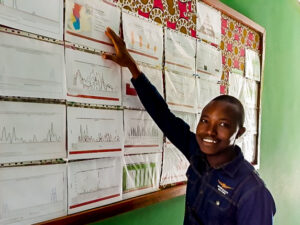News

35 Years of Epidemiological Surveillance: A Local Approach for Global Impact
25 June 2025
In 1990, as the AIDS epidemic hit Francophone Africa hard, Santé Monde stepped in to support countries in strengthening their ability to detect and respond to health threats. This marked the beginning of a journey spanning more than three decades — driven by innovation, collaboration, and tangible results.
Milestones Along the Way
1990-1998: The First Steps
It all began with the Epidemiological Surveillance Support Project (PASÉ), backed by Canadian cooperation. Five West African countries (Benin, Burkina Faso, Ivory Coast, Mali, and Niger) trusted us to improve the collection and analysis of quality health data, through training and information-sharing programs.
This is when the concept of the Centres for Epidemiological Surveillance Center (CES) was born, a groundbreaking idea that quickly became Santé Monde’s signature approach. This methodological innovation laid the foundation for the organization’s future work and has been continuously refined through each new project.
What is a CES?
A CES acts like a local “command center” that brings together health professionals — field agents, lab technicians, and more — to monitor diseases in a targeted region. Instead of working in silos, they collaborate, share data, and respond more quickly. These interdisciplinary teams are trained, equipped, and supported to implement the WHO’s Integrated Disease Surveillance and Response (IDSR) strategy effectively.

1999-2011: The Digital Era
With the launch of the Integrated Epidemiological Surveillance Support Project (PASÉi), new technologies came into play. CES’ were connected, and data flowed more efficiently. Later, through PASÉi 2, we helped five countries (Benin, Burkina Faso, Guinea, Mali, and Niger) integrate epidemiology training into their national public health schools. The goal? To ensure sustainable, autonomous skills transfer.
“The idea of training nurses specialized in epidemiology—who can think critically about how to collect data, conduct initial analyses, and transmit information under the best possible conditions—is what helped us build our capacity to respond to epidemic-prone diseases.”
– Adama Traoré, Secretary General, Ministry of Health, Burkina Faso (2009)
2014-2017: A Regional Vision
The West Africa Regional Disease Surveillance (WARDS) project, funded by the World Bank, opened the doors to the ECOWAS region. We adapted our approach to 15 countries, working alongside the CDC, Fondation Mérieux, WHO, the University of Oslo, and the University of Ghana.
2017-2024: Continued Expansion
Recognized for its expertise, Santé Monde was invited to contribute to the World Bank’s Regional Disease Surveillance Systems Enhancement (REDISSE) programme, allowing us to go even further. Through successive mandates, we deployed nearly 150 new CES’ across 10 countries. We refined our methods, continued to rely on local expertise, and expanded into Central Africa with projects in Chad and the Democratic Republic of Congo.
“This [program] strengthened national and provincial capacities in epidemiological surveillance, laboratory diagnostics, public health emergency management, human resource development, and multisectoral coordination. Thanks to the commitment of all partners [including Santé Monde] significant progress has been made in health security.”
– Dr. Dominique BAABO KUBUYA, National Coordinator, Health System Development Program, DRC (2025)
What We’ve Achieved Together
- 1,567 professionals trained across 18 countries
- 697 CES established or strengthened
- $36 million mobilized
- 18 partner countries
Behind these numbers are lives protected. It’s impossible to count the number of epidemics prevented thanks to early detection and prevention. Every trained professional, every center established, represents a stronger capacity to prevent outbreaks and contribute to global health security.
Our Strength: An Integrated Approach
We believe in the “One Health” vision: human, animal, and environmental health are interconnected. This holistic approach guides everything we do.
5 Pillars of Success
- Decentralize surveillance to the district level
- Train local teams
- Institutionalize training in national schools
- Connect labs with the field
- Strengthen regional health security
35 Years Later: Our Vision
Our role is not to direct, but to support. CES’ belong to the countries and the local teams who bring them to life. With openness, respect, and active listening, we’ve shown that building sustainable systems is possible.
And the story continues, alongside our African partners, to meet today’s and tomorrow’s health challenges.
–
Thank You
To all those who have been part of this journey — our teams in Africa and Canada, our partners, and above all, the field agents — thank you. It is because of your dedication that this collective expertise exists and continues to thrive at Santé Monde.

